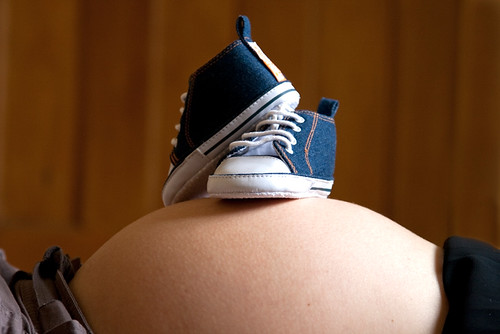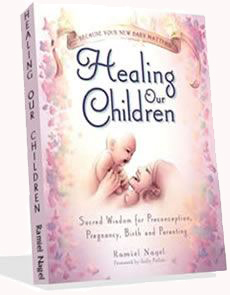Trace Nutrients to Include in a Healthy Pregnancy Diet and Where to Get Them
A daily supply of trace minerals and vitamins are important for healthy, especially for pregnancy health. There are really no unimportant nutrients that your baby doesn’t need, but it’s true that certain nutrients may be more important for the growth and development of your child. When nutritional deficiencies are present, problems and complications are more likely for both the mother and baby. So, following a healthy diet can help you to avoid many of these problems.
A healthy pregnancy should focus on getting the nutrition from whole foods instead of supplements, because those foods contain countless nutrients that work together for maximum absorption within the body. Don’t use synthetic vitamins… it is common for them to move through your body and exit through elimination without any of the nutrients being absorbed, and some synthetic vitamins can actually overload your body. Skipping the supplements and focusing on a well-rounded diet will support your health and the health of your baby during pregnancy, especially if you include foods such as healthy fats, fruits, vegetables, and fermented grains.
This list has been gathered from the information in the book, Healing Our Children, and you will be able to see the nutrients that should be consumed during pregnancy, as well as what types of foods will provide the nutrition.
List of Essential Nutrients for a Healthy Pregnancy
- Vitamin B-12: During preconception, vitamin B-12 is especially important, because a deficiency may actually lead to infertility. B-12 can be obtained through milk, yogurt, beef, salmon, eggs, fish, liver and oysters.
- Zinc: The birthing process will be more difficult if you are lacking of zinc, and in some cases it may actually also lead to emotional detachment issues between baby and mom. A daily dose of zinc is found in crab, beef, pumpkin seed, oysters, and certain wheat products.
- Magnesium: Kidney damage and/or calcium deposits may occur if there is a lack of magnesium during pregnancy. Be sur eyou are getting magnesium through foods such as black beans, almonds, pumpkin seeds, fish sauce, rye, spinach, and clams.
- Iron: Lacking iron can cause a pregnant woman to feel extra tired because of anemia, and certain birth defects may occur in the eyes, brain, and bones of the baby. In severe cases, iron deficiency be the cause of infant death or stillbirth! Get enough iron in your diet by eating dark leafy greens, oysters, and meats.
- Chromium: A baby may have eye problems is there is a lack of chromium. Chromium can be obtained through turkey thigh, broccoli, and nutritional yeast.
- Copper: Anemia can also be caused by a copper deficiency, and other side effects may include fragile bones and depigmentation. Consume these foods for a good copper source… nutritional yeast, sunflower seeds, clams, crab, oysters, and liver.
- Cobalt: If an iron deficiency is present, it can be exacerbated by a lack of cobalt. Get cobalt through the same foods that are used for vitamin B-12, because it is actually found within this vitamin’s structure.
- Iodine: Iodine deficiency can be the cause of thyroid issues for women and mental deficiency for babies. Iodine can be obtained from milk, tuna, salmon, shrimp, cod, and seaweed.
- Manganese: Some cases of stillbirth has been linked to a serious deficiency in manganese. This mineral can be found in sweet potatoes, pumpkin seeds, macadamia nuts, pecans, mussels, and pine nuts.
- Potassium: A potassium deficiency may lead to insomnia, and it can also cause pregnant women to be tired and listless. For more potassium, eat cabbage, sunflower seeds, beet greens, dates, bamboo shoots, prunes, rye, and quinoa.
- Selenium: Down syndrome has been linked to a lack of selenium. Selenium can be obtained through fish eggs, tuna, meat, Brazil nuts, turkey giblets, and oysters.
- Silicon: This essential nutrient is necessary for providing the building blocks which are needed for a healthy placenta, and the growth of bones and connective tissues. Silicon can be found in tomatoes, lettuce, root vegetables, partially milled rice, and barley.
- Vanadium: When this nutrient is lacking it can reproductive issues and cause growth problems. You can get vanadium by eating dill seed, mushrooms, cabbage, carrots, green beans, rice, and buckwheat.
- Nickel: When a nickel deficiency is present, it may cause kidney failure and liver cirrhosis in adults. You can get higher levels of nickel by eating nuts, peas, lentils, and leafy green vegetables.
Even though the term “trace nutrients” sounds insignificant, they are still needed in small amounts and pregnancy problems can occur if you are deficient in any of these nutrients. The best pathway to avoid pregnancy complications is by following a well-rounded, healthy diet which includes organic vegetables and meats.
To learn more about all the nutrition that is needed during pregnancy, make it a point to read Healing Our Children. This book is full of nutritional advice for all stages in life, including pregnancy, and lactation. It is a balanced guide to experiencing a healthier, nutritionally balanced life.
Photo Credit: tommo4074 from







